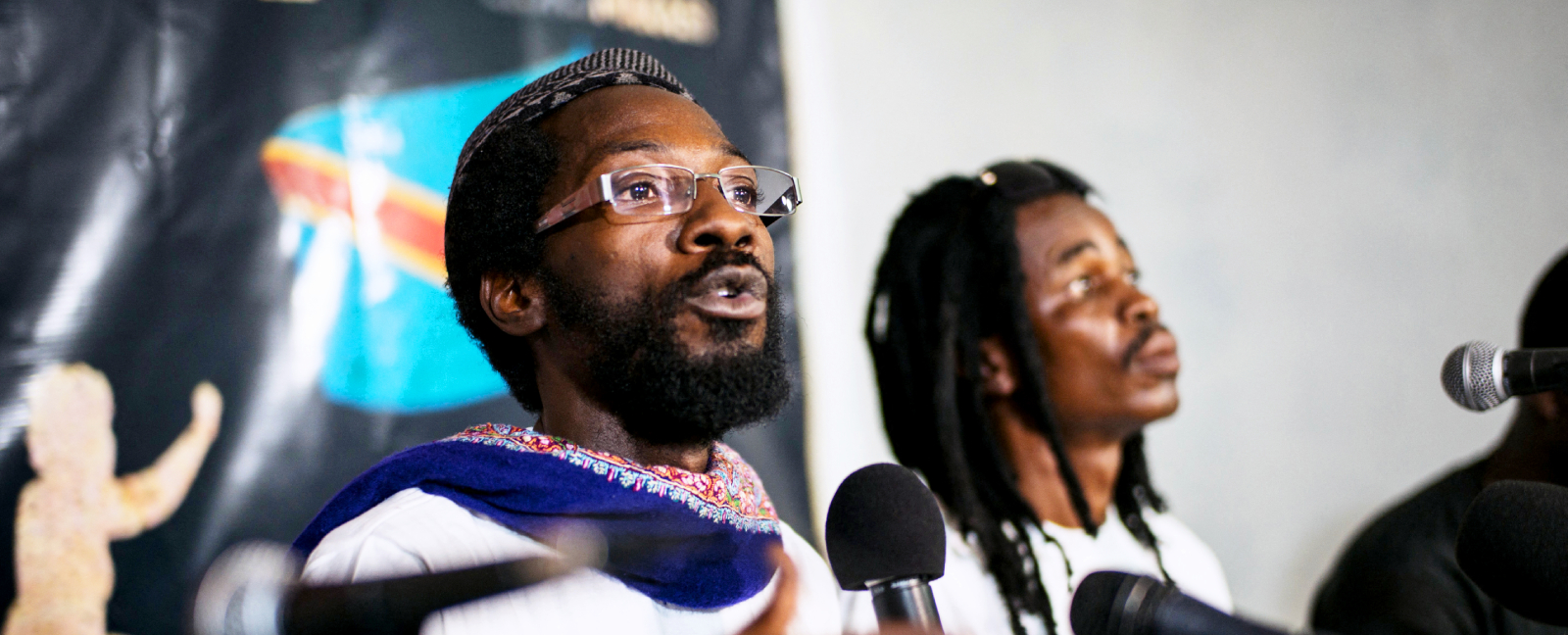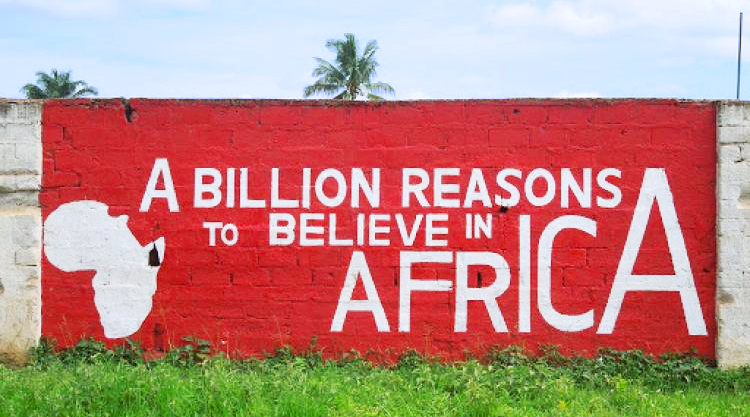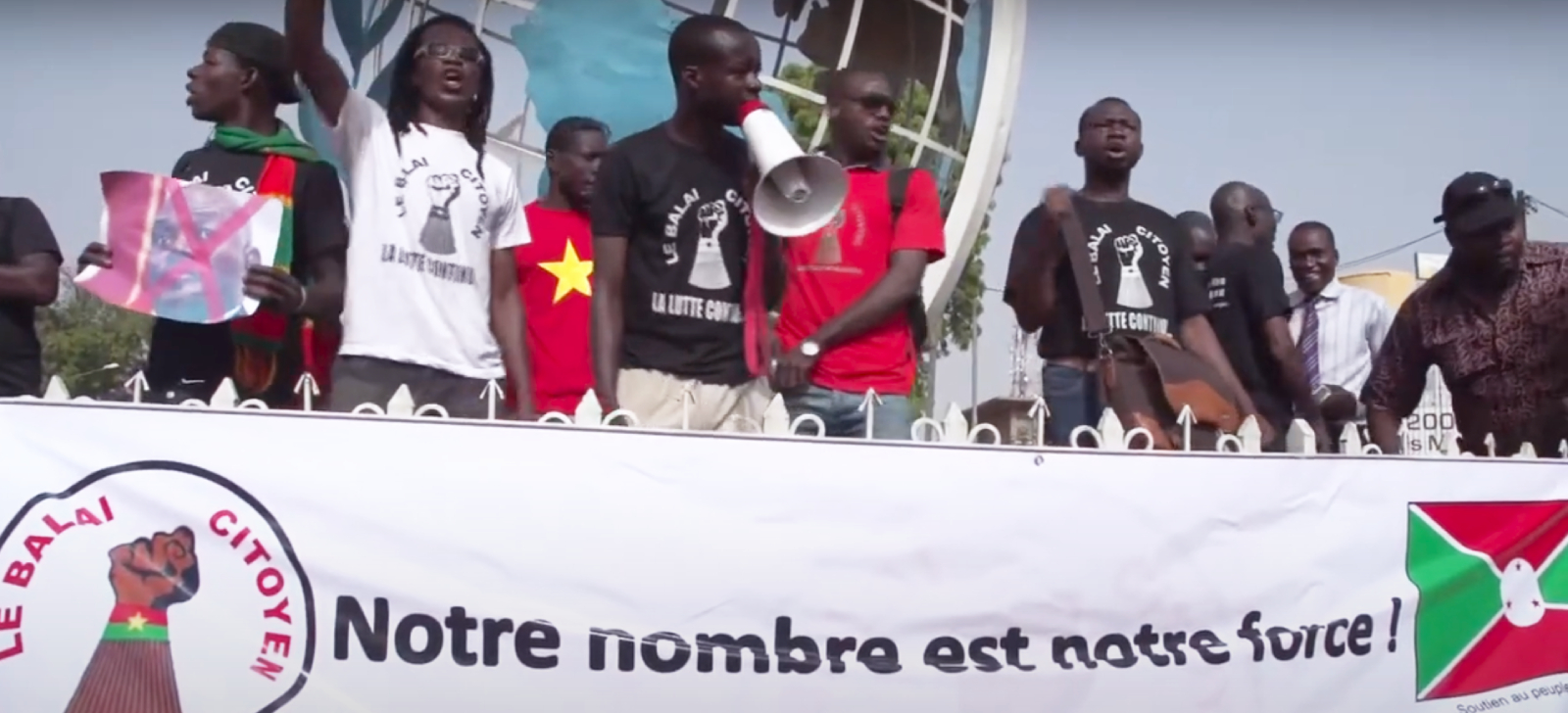
Fadel Barro of Senegal’s Y’en a Marre motion at a press convention in Kinshasa in March 2015. Members of Y’en a Marre, Burkina Faso’s Le Balai Citoyen, and the DRC’s Filimbi and La Lucha are a part of a rising development of younger individuals reinventing Pan-Africanism and embracing democratic solidarity in Africa. (Picture: AFP/Federico Scoppa)
The Pan-African motion marks its one hundred and fifth anniversary in 2024. For many years, Pan-Africanist dialogue in Africa, the Caribbean, and the Americas championed the mental basis to advance decolonization and lay out the rules of peace, democracy, and human rights to information the newly impartial African societies on the continent.
The Group of African Unity (OAU), based in 1963, and its successor the African Union (AU) are merchandise of the Pan-African motion. So, too, is the shift to democratic and inclusive governance and common structure making that swept by means of Africa from the Nineteen Nineties to the 2010s.
Genuine Pan-Africanism stands for individuals’s democracy and connects their struggles throughout borders.
But, at this time, opposition events, the media, and impartial thought are sometimes violently suppressed in lots of elements of Africa, resulting in a shrinking mental area for essential considering and dialogue. Many opposition events are blocked from even campaigning, and there was a resurgence of fraudulent elections on the continent. Solely 5 African nations are rated “free” in Freedom Home’s annual survey of political rights and civil liberties. Nineteen are ranked “partly free” and the remainder “not free.” Such rankings monitor carefully with these of the Ibrahim Index of African Governance, an African governance barometer that has been printed since 2007.
This repression of impartial African thought leaders echoes a distrust that has continued between post-colonial governments and “the Academy,” together with over freedom of expression, participatory democracy, and human and other people’s rights. College students, intellectuals, students, poets, and literary critics have usually been among the many most focused and incarcerated teams in Africa.
The enduring wrestle for freedom, justice, and democracy in Africa at this time is a part of an ongoing debate and bigger query over who represents African company and whose pursuits governments are supposed to serve—heads of states or residents. It additionally provokes the problem of how the continent’s lengthy legacy of Pan-Africanism might be employed to the present actuality of democratic backsliding gripping the continent.
A Storied Mental Legacy for Freedom
Pan-Africanist thought conceives of democracy and human rights as a bottom-up wrestle the place individuals exert company, maintain their leaders accountable, and reform governance constructions in order that they serve citizen pursuits. Pan-Africanism rejects the concept human rights are disbursed from the highest by governments, however relatively calls on residents to train fixed vigilance. These African expressions of human rights and democracy are codified within the 1976 Common Declaration of the Rights of Peoples (the Algiers Constitution).
African students and intellectuals comprising the Pan-African motion undertook lifelong campaigns to the causes of decolonizing educational departments and retooling them into facilities of impartial thought that offered the mental structure for democratization.

A Pan-African sign up Tanzania.
These Pan-Africanist beliefs subsequently formed continental governance norms and establishments. The OAU was a compromise between two dominant strands of the Pan-African motion. The Casablanca group favored a “borderless Africa,” deep integration, and a united federation of African states instantly, with widespread organs like a single African military. In the meantime, the Monrovia group needed a looser alliance of gradual financial cooperation centered on the nation-state.
The latter imaginative and prescient prevailed and shaped the premise of the OAU/AU in its present kind. Nonetheless, the visions of the Casablanca group stay a rallying credo for Pan-Africanists. They reside on within the AU’s “Agenda 2063” that envisions a federation of African states by the 2060s and the AU determination in 2008 to set up the diaspora because the Union’s sixth area. This permits Pan-Africanists from the Americas, Caribbean, and different areas to take part within the AU’s constructions and decision-making.
African Jail Intellectuals
The method has typically been bumpy, nonetheless. The newly impartial African states reproduced, with minor adjustments, the oppressive equipment of the colonial regimes, together with their undemocratic practices. Certainly, Pan-Africanist intellectuals, college students, college professors, and social commentators quickly discovered themselves at odds with ruling elites as authoritarian practices crept in.
Newly impartial African states reproduced, with minor adjustments, the oppressive equipment of the colonial regimes.
This resulted in imprisonment and exile, maybe finest captured by the time period “African Jail Intellectuals,” which emerged as a definite custom inside African political thought.
Through the early post-independence many years, a whole bunch of intellectuals, writers, and activists had been languishing in exile, together with celebrated thinkers like Nawal El Saadawi (Egypt), Ken Saro-Wiwa (Nigeria), Micere Githae Mugo and Ngũgĩ wa Thiong’o (Kenya), Francis Ibingira (Uganda), Bessie Head and Dennis Brutus (South Africa), David Rubadiri, (Malawi), and Ama Ata Aidoo (Ghana). This disillusionment with the repressiveness of African independence leaders likewise difficult relations with famous world Pan-Africanists and allies like Amy Ashwood Garvey, Harry Belafonte, Walter Rodney, James Baldwin, Carole Boyce Davies, and Dr. Martin Luther King, Jr., to call just some.
Micere Githae Mugo and Ama Ata Aidoo, who each handed in 2023, are emblematic of main Pan-Africanist students who skilled torture, imprisonment, and exile. They discovered refuge in newly impartial Zimbabwe the place they labored collectively. Micere Mugo solely regained her Kenyan citizenship in 2010, which means she was both stateless or a citizen of different nations, most of her grownup life. All her literary works, essays, and writings had been banned in her mom nation till the previous decade.
As a result of she couldn’t be cited or quoted, Kenyans had been additionally unaware of her immense contributions to decolonization in southern Africa, democratization in Kenya, and the civil rights motion in america. The same destiny befell most of her contemporaries.
Each ladies theorized that nationwide liberation doesn’t finish with formal independence. Liberation, they stated, is a steady means of empowering individuals to grasp and rework the constructions of oppressive authorities and construct democracy on a brand new foundation with citizen company and vigilance at its core. Their works centered on reclaiming areas for mental and common thought, reimagining ideas of freedom, and instructing residents to develop into brokers of their very own self-determination by means of democracy and vigilance.
Liberation is a steady means of empowering individuals to grasp and rework the constructions of oppressive authorities and construct democracy on a brand new foundation with citizen company and vigilance at its core.
Such visions of a broader people-oriented Pan-African motion had been regularly institutionalized. A few of Africa’s most essential tasks in democracy—such because the Sovereign Nationwide Conferences in Benin, Chad, Comoros, Congo, Gabon, Mali, Niger, Togo, and Zaire (now the Democratic Republic of the Congo) between 1991 and 1993—hint their mental roots to the areas of studying {that a} lengthy line of thought leaders established in locations like the schools of Algiers, Tunis, Cairo, Dakar, Accra, Dar es Salaam, Kinshasa, Ibadan, Nairobi, and Harare, to call just some.
The College of Nairobi—particularly the College of Arts, which Micere Mugo as soon as led as Africa’s first non-white college dean—nurtured Kenya’s democracy motion in the course of the tortuous transition from 30 years of dictatorial rule by the Kenya Africa Nationwide Union (KANU). This got here at a excessive value, nonetheless, with college college students and professors usually detained, exiled, or killed, particularly between 1991, when the wrestle for multiparty democracy took off, till 2001, when KANU was voted out of energy by a landslide.
Co-option, Intimidation, and the Muzzling of Free Thought
Sadly, the Pan-African beliefs of citizen engagement, upholding multipartyism, and accountability of public officers to residents have suffered setbacks previously decade. Notions of citizen company and democracy as a bottom-up course of have at occasions been thought to be subversive.
“Pan-Africanism was kidnapped,” says Nanjala Nyabola, a number one Kenyan creator. “Calls to unity had been used to justify state violence and repression, to animate requires blind loyalty to the state.” Nyabola was referring to the ruling elite in lots of African nations who use the mantle of Pan-Africanism to legitimize oppressive authorities. “Books and all types of writing have all the time been objects of terror to those that search to suppress reality,” says Nigerian Pan-Africanist, Nobel Laureate, and former prisoner Wole Soyinka.
Relating to nationwide universities as hotbeds of subversion, governments have sought to regulate them by proscribing the formation of educational unions, eradicating safety of tenure for professors, planting informers, and selling regime-friendly lecturers. In lots of nations, the top of state additionally held the official place of Chancellor of their nationwide college, a colonial relic designed to convey educational establishments according to state coverage.
Such measures proceed in numerous kinds all through a lot of Africa at this time, the place relationships between private and non-private college departments and governments stay tense and fraught with suspicion.
Core Beliefs
Pan-Africanism emphasizes common sovereignty, together with the accountability to guard, the precept of “non-indifference,” and world solidarity.
Pan-Africanism views democracy as an ongoing course of through which residents collectively take part in remodeling governance establishments. Democracy on this sense goes past elections and multiparty politics to outline a lifestyle. Secondly, Pan-Africanism doesn’t equate statehood with freedom, as many states violate their residents’ rights underneath the duvet of nationwide sovereignty. Pan-Africanism, as an alternative, emphasizes common sovereignty, together with the accountability to guard, the precept of “non-indifference,” and world solidarity. Lastly, Pan-Africanism encourages individuals to embrace different struggles for freedom as their very own and stand prepared to assist.
Based on Micere Mugo, “I’m a border crosser, defying geographical containment. I’m Zimbabwean, I’m African, I’m Pan-African, I’m Nigerian, I’m Jamaican, I’m an internationalist, I’m a Black American, I’m trans-nationalist. I’m a citizen of the world.” Such views reside on in Pan-Africanist coalitions like Senegal’s “Y’en a Marre,” Burkina Faso’s “Balai Citoyen,” and “Filimbi” and “La Lucha” within the Democratic Republic of the Congo (DRC)—all a part of a rising development of younger individuals reinventing Pan-Africanism and embracing democratic struggles in different nations.
In 2015, Y’en a Marre and Balai Citoyen activists converged within the DRC to work with Congolese civil society to develop a technique of resistance when it turned clear that Joseph Kabila would ignore the structure and cling to energy. Some even participated in nationwide protests and ended up in jail.
That very same 12 months, Balai Citoyen members shared ways with Burundian civil society, enabling them to maintain each day protests for 3 months over President Pierre Nkurunziza’s declare to a 3rd time period. Again dwelling in Ouagadougou, they organized common “solidarity protests” on behalf of Burundian protestors. The theme of those solidarity protests was “Je suis Burundais” (I’m Burundian). In Zimbabwe, civic actions have benefited from a number of many years of solidarity work from southern African civic organizations.

Burkina Faso residents specific solidarity with Burundians protesting Pierre Nkurunziza’s unconstitutional third time period. (Picture: display seize)
At a solidarity dinner of the Zimbabwe Human Rights Affiliation (ZimRights) on the sidelines of the 77th session of the African Fee on Human and Peoples’ Rights (ACHPR) in Tanzania in October 2023, continental human rights coalitions pledged to step up their engagement with the Zimbabwe disaster and “be taught from the founding fathers of the AU on the significance of giving solidarity to one another.” The 1,000-member Pan-African Legal professionals Union and the Pan-African Human Rights Defenders Community had been among the many coalitions on the assembly.
Pan-African Democratic Beliefs on the African Union and RECs
Pan-Africanism has helped create establishments and form norms throughout the regional financial communities (RECs) and the AU itself. The Southern African Political Economic system Collection (SAPES) Belief, one of many oldest associates of the Pan-African Congress (PAC), helped draft the Southern African Improvement Group (SADC) Ideas and Pointers Governing Democratic Elections and the SADC Electoral Advisory Council that goals to forestall and deter election-related battle and electoral fraud. The East African Civil Society Organizations Discussion board (EASCOF), a Pan-African group that facilitates civil society engagement with the East African Group (EAC), has been half of a bigger push by civic organizations to place the institution of an East African Federation on the EAC’s agenda.
In 2023, the ACHPR agreed to nominate an impartial Focal Level on Judicial Independence in Africa to monitor, monitor, and report on threats to judicial independence among the many AU’s 54 member states. That call was the result of sustained and coordinated lobbying and engagement by 4 Pan-African initiatives: the Pan-African Legal professionals Union, the African Judges and Jurists Discussion board, Southern Defenders, and African Defenders.
Younger professionals are anchoring Africa’s modern democratic struggles firmly throughout the mental foundations of Pan-Africanism.
Younger professionals are anchoring Africa’s modern democratic struggles firmly throughout the mental foundations of Pan-Africanism. Afrobarometer’s newest survey finds that almost 70 % of Africans want democracy to another system. Greater than three-quarters reject army rule, one-party rule, or one-man rule. Notably, residents aged 18-30 present a stronger dedication to democracy. But, they face ongoing resistance from those that would usurp citizen company and try to current fraudulent elections as democracy. Solely 43 % of African residents, accordingly, are glad with the best way democracy works of their nation.
This would possibly clarify why younger individuals look like more and more drawn to the concept of redefining Pan-Africanism as a mobilizing device for democratic and nonviolent resistance and narrative-building. A whole bunch of democracy-minded Pan-African youth teams have shaped lately alongside the regular uptick of excellent governance protests previously decade. Some just like the Pan-African Community, the Pan-African Motion Reborn, Being Pan-African, and the Middle for Pan-African Tradition have hundreds of members.
Professor Achille Mbembe, Africa’s first Holberg Prize laureate, is one other modern mannequin of public mental championing Pan-Africanism. A Cameroonian-born educational on the College of Witwatersrand, Mbembe leads the Innovation for Democracy Basis—a Pan-African group selling analysis and the manufacturing of latest considering on democracy in Africa.
Revitalizing the Beliefs of Pan-Africanism
Professional-democracy grassroots organizations are more and more difficult the appropriation of Pan-Africanism by ruling authorities who use it to guard themselves and their fellow incumbents and isolate individuals’s actions as “imperialist brokers. Genuine Pan-Africanism stands for individuals’s democracy and connects their struggles throughout borders. Within the course of it forges a typical id and shared expertise that rise above the strictures of the state.
Notably, social actions, grassroots coalitions, {and professional} associations view their democratic struggles as interlinked and have made solidarity and mutual assist central to their work. That is essential with a purpose to present that repression of voices in a single nation won’t be met by silence or inaction elsewhere. Concurrently, civic coalitions {and professional} coalitions proceed to push for softer borders, deeper integration, widespread establishments, and inclusion of the African diaspora within the AU’s decision-making.
“The human rights [and democracy] wrestle is a liberation wrestle … the identical wrestle that our forebearers waged towards colonialism.”
Facilities of studying—significantly state and personal universities—can play their half by reclaiming their historic position in producing concepts to information common struggles for democracy. There’s additionally a have to be taught from historical past to strengthen safeguards to guard reform actions, areas for mental thought and studying, and people who communicate reality to energy.
Pan-Africanism is growing as a central credo of such efforts. As Dzikamai Bere, the Director of ZimRights explains, “The human rights [and democracy] wrestle is a liberation wrestle meant to fulfil the promise of the liberation. The truth that we select to wage it with out violence doesn’t make it much less essential. It’s the similar wrestle that our forebearers waged towards colonialism.”
Further Sources
- Paul Nantulya, “Regime Seize of the Courts in Africa,” Highlight, Africa Middle for Strategic Research, February 27, 2024.
- Paul Nantulya, “SADC Makes an attempt to Navigate Zimbabwe’s Disputed Election,” Highlight, Africa Middle for Strategic Research, October 11, 2023.
- Kimani Njogu, “I Am As a result of You Are: Professor Micere Mugo in Her Personal Phrases,” The Elephant, July 25, 2023.
- Rose A. Sackeyfio, “Ama Ata Aidoo: The Pioneering Author from Ghana Left Behind a String of Feminist Classics,” The Dialog, July 7, 2023.
- Africa Middle for Strategic Research, “The Persistence of Cults of Persona in African Governance,” Highlight, Africa Middle for Strategic Research, March 14, 2023.
- Ernest Wamba-dia-Wamba Bazunini and Michael Neocosmos, “The Thought and Follow of an Emancipatory Politics for Africa,” Tricontinental, July 20, 2022.
- Paul Nantulya, “The Troubled Democratic Transitions of African Liberation Actions,” Highlight, Africa Middle for Strategic Research, December 14, 2017.




